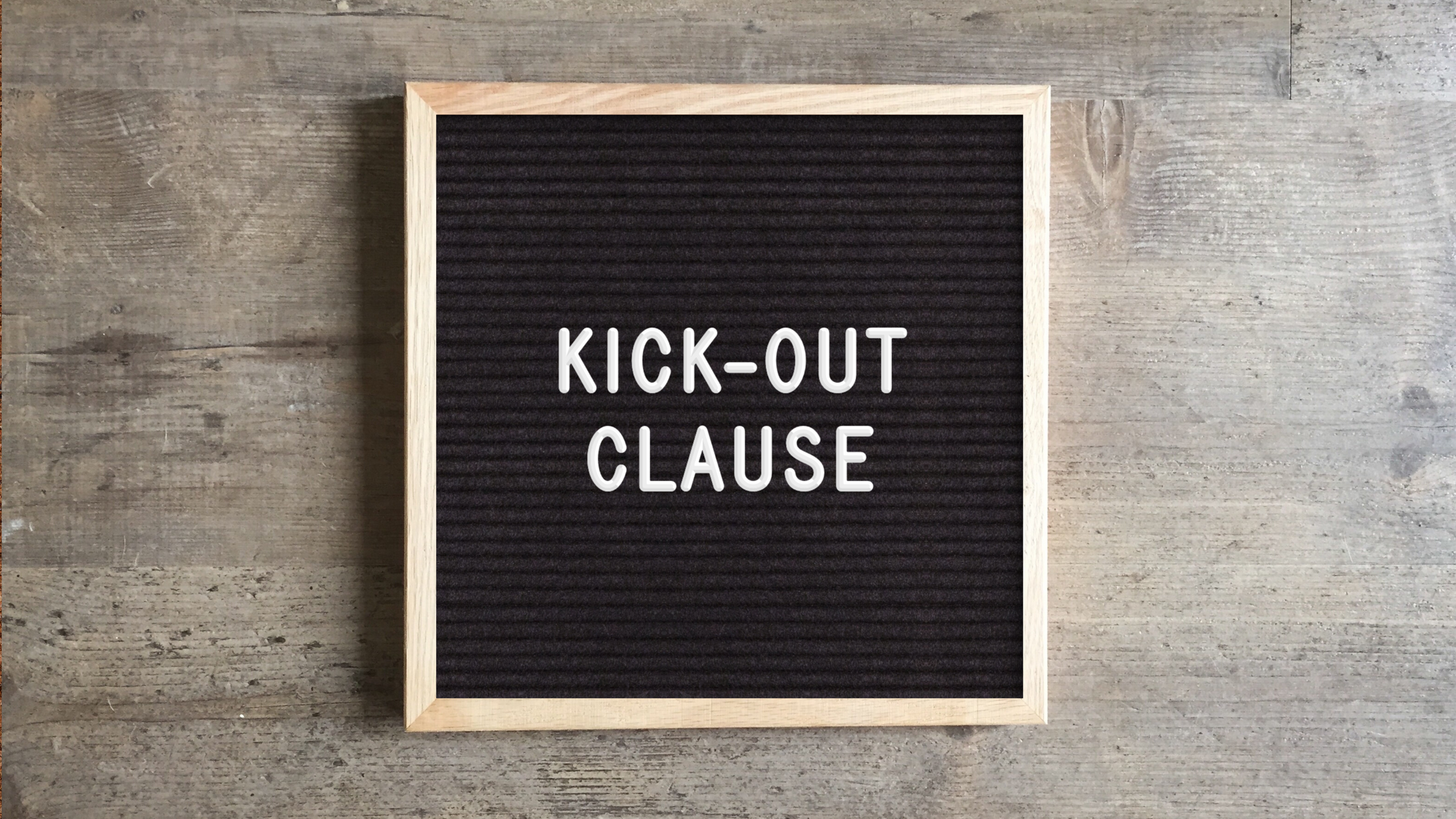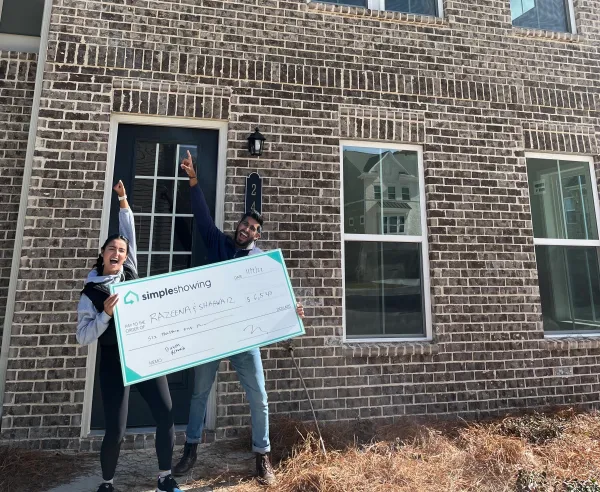When it comes to houses, the term “kick out” probably doesn’t have the best connotation.
However, a “kick-out clause” is actually a very common stipulation added to sales contracts when selling a house.
Whether you’re selling your house or you’re a homeowner who will soon be moving, it’s important that you understand what a kick-out clause entails.
Definition of a Kick-Out Clause
Before we explain what a kick-out clause is, we first need to cover contingencies:
In real estate, if a property is marked as “contingent”, it means that an offer has been made and the owner accepted it.
However, it’s contingent (instead of “sold”) because one or both parties have requested certain provisions which the other party has yet to approve.
One common type of contingency is a "home sale contingency", which means that the sale is contingent upon the buyer selling their current home first. In other words, the buyer wants the seller’s house, but they don’t want two mortgages. So, the sales contract effectively says, “The buyer will officially purchase the home on or before xx/xx/xx if they’ve sold their home. If they haven’t, the sale is dissolved.”
With a kick-out clause added to the sales contract, the seller agrees to the home sale contingency, but they also reserve the right to kick out (e.g. remove, cancel, etc.) the contingency if another offer is received.
The seller can also continue marketing the house, which is another key feature. Furthermore, if they receive another offer, the buyer will only have a finite period of time (usually 24-72 hours) to remove the contingency. Otherwise, the seller can accept the new offer.
Advantages of a Kick-Out Clause
While kick-out clauses may seem to favor the seller, buyers may insist on them as well. Here are three features they bring to the table.
1) De-Risks the Contract for the Seller
Again, the benefits for the seller are obvious.
The main one is that the kick out clause allows a path for the home sale contingency to be a part of the contract, but also gives the seller the right to can also cancel the contract if another offer shows up. That’s peace-of-mind any seller would love to have.
It works out well for buyers, too. Imagine finding your dream home before you’re able to sell your current property. If not for a kick-out clause, most people would have to take on two mortgages until they were able to sell their first house. The only alternative would be giving up on that dream house.
2) Extends Marketing Opportunities for the Seller
Sellers also love that they can continue marketing their property despite the fact that they’ve already accepted an offer.
They can even accept higher offers from another buyer. Even though the “right of first refusal” would mean the original buyer gets the chance to match it before losing the house, the seller still comes out ahead.
3) Makes the Home Sale Contingency More Palatable
Without a kick out clause, most sellers will simply reject an offer that has a home sale contingency. Adding the kickout clause, makes the offer much more tolerable to a seller. Finally, if you’re the seller and a buyer asks you for a home sale contingency, you should probably feel entitled to negotiate a bit too.
A common demand for sellers in this situation is simply an aggressive timeline for the buyer to move forward. If you anticipate more offers are on their way, you’ll have even more leverage with which to pressure the buyer into selling their house ASAP, so you can finish the sale.
Disadvantages of a Kick-Out Clause
Kick-out clauses aren’t always a good idea, though. Again, it may seem like sellers would be foolish to forego them, but kick-out clauses could backfire for either party.
1) Original Buyer Loses the House to 2nd Buyer
As the buyer, if your contract has a home sale contingency with a kick out clause, you'll need to move quickly to sell your current home. That's because if the seller gets a 2nd offer (either higher or lower), the seller can accept that offer if you don't have your other home under contract yet. That's assuming you can't carry two mortgages.
2) Losing a Higher Offer as the Seller
The right of first refusal means that sellers can’t just accept an offer if they’ve already entered into a contract with the first, original buyer, even with a kick-out clause in place.
Instead, they have to give the initial buyer a certain amount of time to match it.
If you’re the seller, this probably doesn’t seem like a bad thing. Either way, you get the higher amount, right? While we did list that as one of the advantages of a kick-out clause, there is a chance that both offers could fall through.
Say, you agree to sell your house to an initial buyer for $400,000, provided they sell their house in the next 60 days.
Then, a few days later, another buyer offers you $415,000. You let the initial original buyer know. They agree to match it, even though it means taking on two mortgages. You give the second buyer the bad news and prepare for the sale of your home.
Are You Thinking About Selling Your House?
While kick-out clauses aren’t always necessary, it’s helpful to understand how they work in case you receive an offer from someone who wants to sell their own house first.
Of course, as you now know, it’s not always in your best interest to include such a clause. An experienced real estate agent can recommend when it makes the most sense.
At SimpleShowing, we’d love to help you connect with such an agent. Best of all, we only charge a 1% fee to list your home. Contact us today and we’ll explain how simple it is to use our platform.






